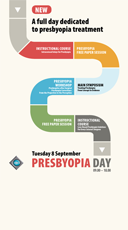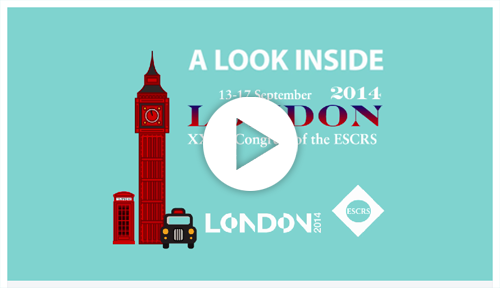National review of clinical and marketing practices of laser refractive surgery providers in the United Kingdom
(results will display both Free Papers & Poster)
Session Details
Session Title: Photoablation Outcomes I
Session Date/Time: Monday 07/09/2015 | 16:30-18:30
Paper Time: 18:03
Venue: Room 17
First Author: : S.Rufai UK
Co Author(s): : B. Mitchell D. Anderson
Abstract Details
Purpose:
Patient safety is a fundamental issue in laser refractive surgery. Currently, no statutory regulations exist for providers of refractive surgery in the UK. The Royal College of Ophthalmologists (RCOphth) has produced clinical guidelines for refractive surgery, which state that pre- and post-operative consultations and the surgery itself should be conducted by a refractive surgeon, and a cool-off period prior to surgery should be mandatory. The UK's Department of Health (DoH) guidelines on the marketing of cosmetic interventions forbid time-sensitive promotional deals. We audited the compliance of the top thirty refractive surgery providers in the UK with these guidelines.
Setting:
Refractive surgery providers in the United Kingdom.
Department of Ophthalmology, University Hospital Southampton, IUK.
Methods:
To replicate a patient searching for laser refractive surgery providers, “laser eye surgery UK” was searched via Google. The top thirty websites of laser refractive surgery providers were included in the study. Websites were analysed for compliance with the RCOphth and DoH guidelines. Where clarification was required, providers were contacted via telephone. Pearson's Chi-squared test compared actual compliance with national recommendations of full compliance.
Results:
Thirty refractive surgery providers in the UK were identified via Google. Mean compliance with all parameters from RCOphth and DoH guidelines was 73.3%, lower than the desired level of full compliance (pv0.01). When dichotomised into commercial companies and independent providers, compliance was 72.7% and 82.1% respectively. 63.3% of all providers offered consultations with a refractive surgeon pre-operatively and 83.3% post-operatively. 96.7% of providers offered refractive surgery exclusively with refractive surgeons; one provider offered the option to have surgery performed by an optometrist on training days at a discounted rate. 93.3% stipulated a cool off period. 20.0% offered time-sensitive promotional deals.
Conclusions:
This study demonstrated low compliance with national guidelines for laser refractive surgery. However, the guidelines are not statutory and non-compliance is not synonymous with unsafe surgery. A dialogue between professional bodies and government to produce appropriate statutory regulations and public awareness into the risks of refractive surgery may improve patient decision making and safety.
Financial Interest:
NONE





